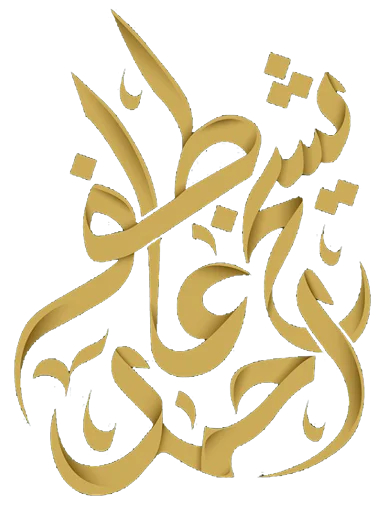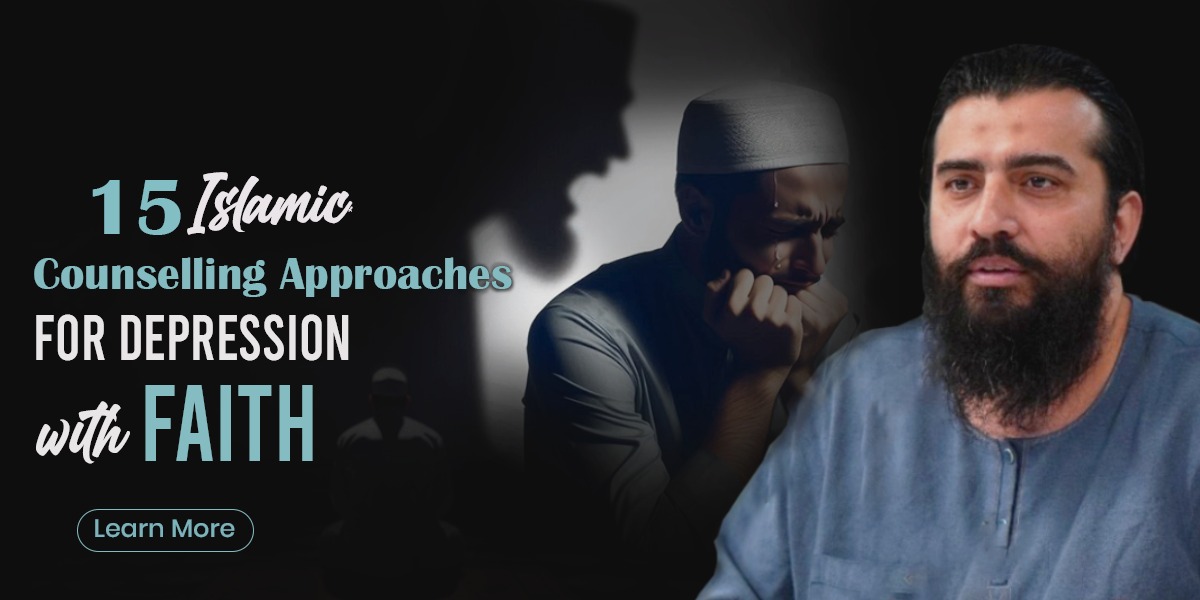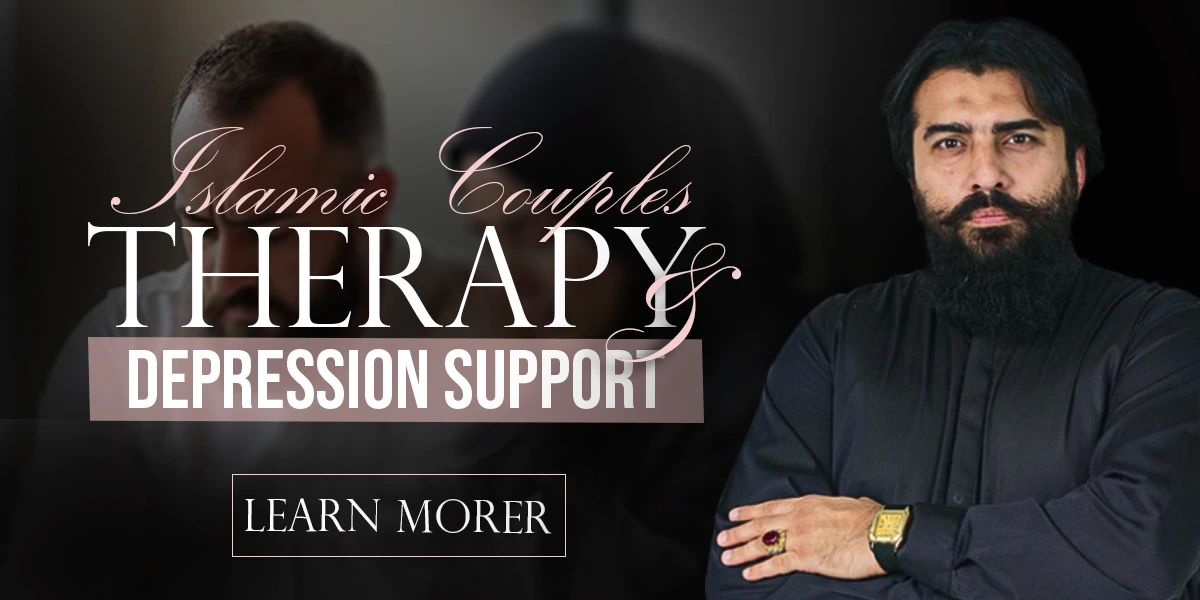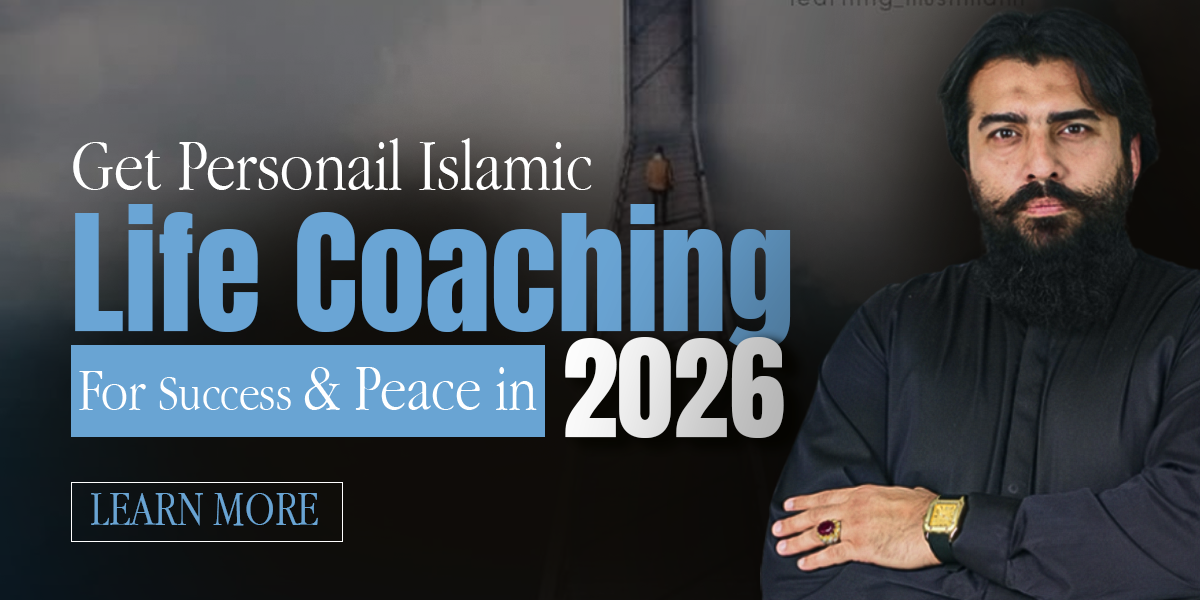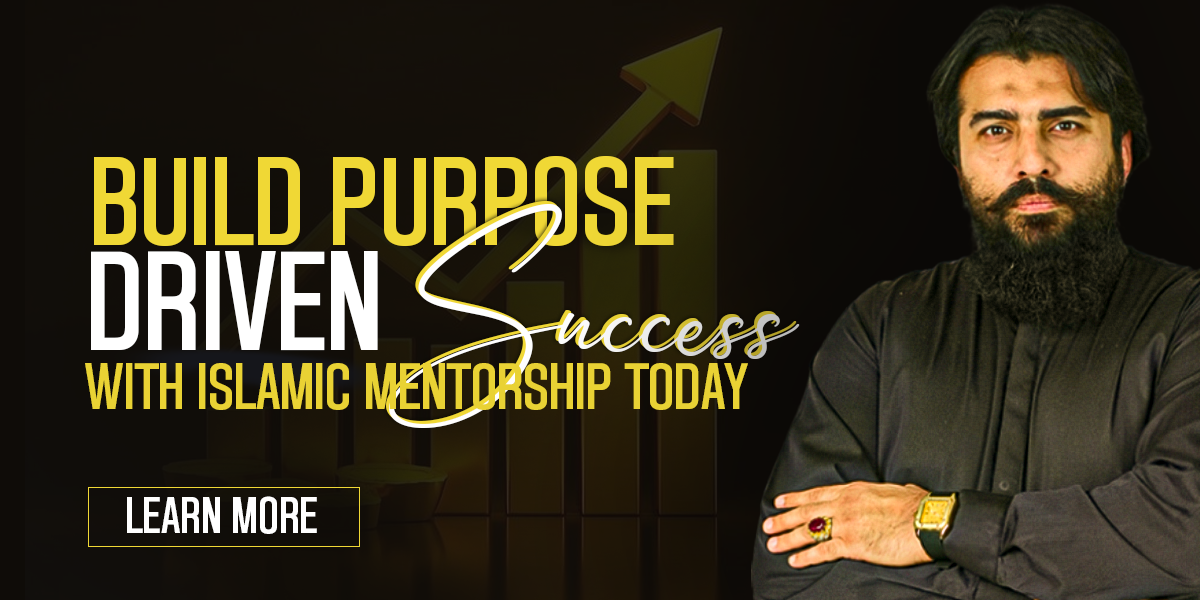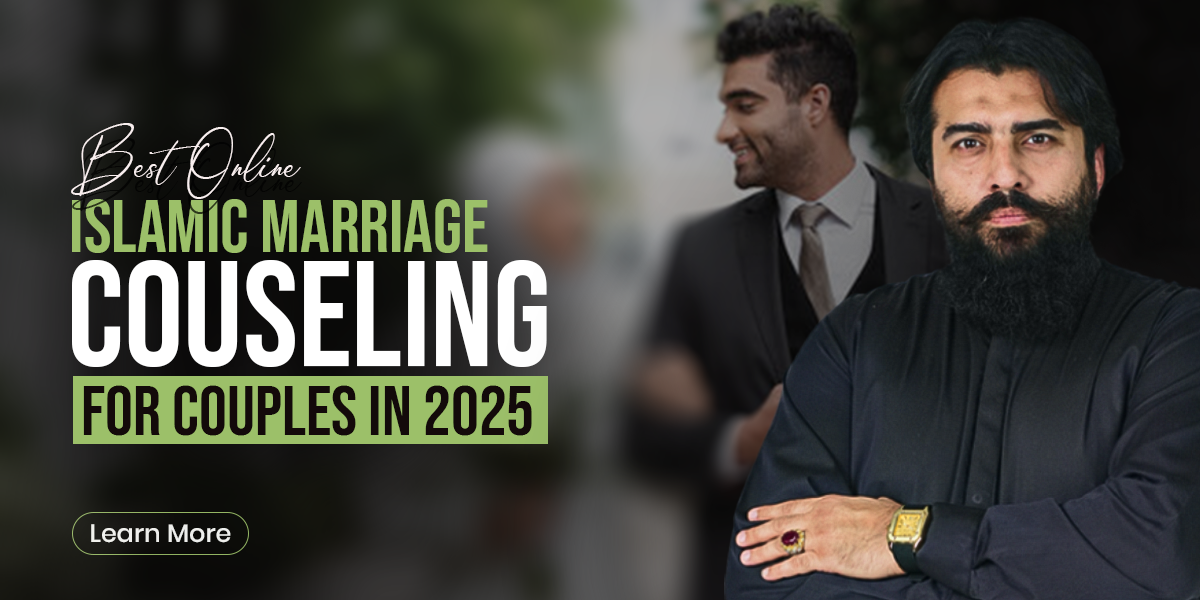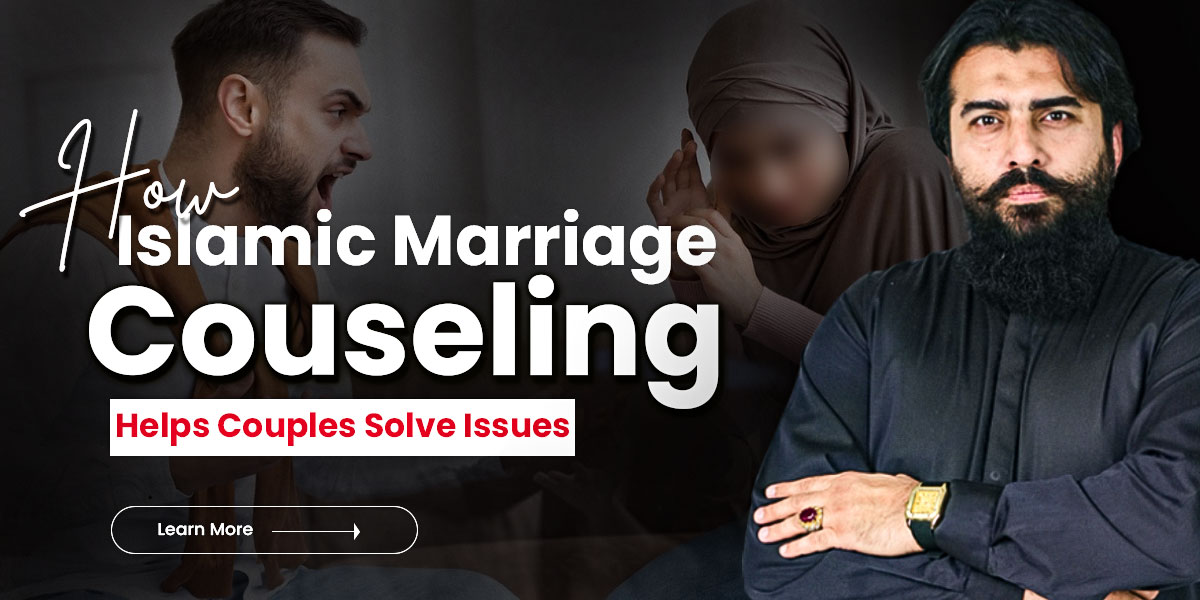Understanding Depression Through an Islamic Lens
Every Muslim has a deep desire to stay connected with Allah ﷻ through every phase of life, including joy, struggle, and grief. In case of depression, many Muslims silently endure, afraid to speak out for fear of being judged as having “weak Iman.”
But depression is not a spiritual failure; it is a human experience that needs compassion, healing, and support grounded in both faith and sound psychological care.
“Indeed, with hardship comes ease.” (Surah Ash-Sharh (94:5–6)
Allah ﷻ acknowledges the human condition like the ebb and flow of emotional states. Even our beloved Prophet Muhammad ﷺ had to face sorrow or sadness. After the passing of his wife Khadijah (R.A) and his uncle Abu Talib, he experienced what historians refer to as ‘Aam al-Huzn (the “Year of Sorrow).”
This period of His life was marked by grief, exhaustion, and emotional vulnerability. Instead of being isolated in his pain, he turned to Allah to continue his mission and leaned on the support of those around him.
Today’s Muslims are facing modern pressures like loneliness, financial hardship, and trauma, which often manifest as depression or anxiety. It’s time to de-stigmatise one’s emotional suffering and say: you can love Allah deeply and still need help.
It is essential to follow a faith-integrated approach with a trusted counselor like Shaykh Atif Ahmed. He helps Muslims to improve their mental health without disconnecting from their Deen through both du’a (supplication) and dawa (treatment).
In the sections below, we will explore 15 spiritually grounded, psychologically informed Islamic approaches to managing depression. Each approach is rooted in the timeless guidance of the Qur’an and Sunnah and informed by modern therapeutic insight.
2. 15 Islamic Counselling Approaches for Depression
1. Quranic Therapy (Ilaj al-Quran)
Allah ﷻ says: “We send down in the Qur’an that which is a healing and a mercy to those who believe” (17:82).
Surahs like Ad-Duha remind us that Allah has not forsaken the struggling soul, and Ar-Rahman repeatedly affirms His favors. Guided Quranic reflection is used by Islamic counselors to reconnect individuals with divine mercy and instil hope.
During the depression, reciting, journaling, or listening to these verses daily becomes a spiritual lifeline for people.
2. Marital Support for Relational Depression
Marital stress is the leading cause of depression among Muslims. Conflicts, emotional neglect, or lack of communication can create challenges in marriage. It is our responsibility to seek help through Islamic couples counseling.
Shaykh Atif Ahmed’s approach offers guidance embedded in Qur’an and Sunnah. Repairing the marital bond can also bring inner peace and self-respect.
3. Islamic Cognitive Behavioral Therapy (CBT)
CBT helps us find and change our negative thoughts, and Islam has always taught us to pay attention to how we talk to ourselves. Depression often says, “I’m worthless.” But the Qur’an says: “Do not despair of Allah’s mercy” (39:53).
A counselor can help someone see if they are feeling guilty for no reason or thinking the worst, and guide them to trust Allah and be thankful instead. Islamic CBT uses verses and Hadith to challenge depressive thinking patterns, embedding them in a framework of hope, repentance, and self-compassion.
4. Du’a & Supplication Routines
The Prophet ﷺ taught us du’as for every state of life, including grief, fear, and hopelessness. Clients are often guided through daily supplication routines, drawn from the Sunnah, like:
“Allahumma inni a’udhu bika min al-hammi wal-hazan…”
“O Turner of hearts, keep my heart firm upon Your religion.”
This supplication fosters emotional release builds a spiritual connection, and routine. Therapists might encourage writing personal du’as or keeping a “du’a diary” to externalise pain while building faith in divine response.
5. Salah as Somatic Grounding
Modern research shows how physical postures impact mental states, and Islam has always known this. The Prophet ﷺ said: “Salah is the coolness of my eyes.” Sujood lowers your cortisol, improves blood flow, and induces humility by grounding the body in serenity.
Counselors help clients to reconnect with Salah, not because it’s a ritual obligation, but to feel therapeutic. Breathing in Rukoo’ or whispering vulnerability in Sujood can help regulate anxiety and foster inner peace.
6. Zakat & Sadaqah for Emotional Purpose
The Prophet ﷺ said: “Charity extinguishes sin like water extinguishes fire.” Many suffering from depression feel purposeless, but Zakat or Sadaqah makes them realise that they matter.
Counselors often recommend small acts of sadaqah to depressed people, like feeding someone, supporting a cause, or giving time. Studies have shown that helping others improves self-worth and dopamine levels. Islam affirms: “service heals the soul”.
7. Islamic Narrative Therapy
Everyone has a story, and in therapy, we help people re-author it. Islamic narrative therapy involves reframing struggles through the lens of Prophetic stories:
- Prophet Yunus (AS) in the whale: “La ilaha illa anta, subhanaka, inni kuntu minaz-zalimeen.”
- Prophet Ayyub (AS): patience through illness and loss.
These stories are emotional mirrors for the Ummah. Clients learn to see their hardship not as punishment, but as a chapter in a test that leads to growth and reward in dunya and akhirah.
8. Tawakkul Journaling
This approach combines reflection, surrender, and hope. Clients are encouraged to journal each day:
- One challenge
- One thing they left in Allah’s hands (tawakkul)
- One blessing, no matter how small
This daily habit fosters trust in Allah’s decree (qadr), builds gratitude, and rewires the mind away from negativity. It also affirms that even in darkness, Allah is near. “He is with you wherever you are” (57:4).
9. Islamic Grief Counseling
Loss is one of the strongest reasons to trigger depression. Islam validates sorrow as the Prophet ﷺ cried openly at the death of his son. Islamic grief counseling focuses on Akhirah-centred healing:
- Understanding death as a transition
- Belief in reunion in Jannah
- Making du’a and sadaqah on behalf of the deceased
Clients learn sabr jameel (beautiful patience) not by suppressing grief, but by handling it with wisdom and hope in reward.
10. Fiqh of Emotions
Many Muslims believe that showing sadness or anger is haram. But these are natural human emotions, and the Sunnah tells us that the Prophet ﷺ cried, became angry at injustice, and felt fear in battle.
Islamic counselors help clients validate emotions without shame. Understanding the fiqh (rules and boundaries) of emotion allows for healthy expression, prevents repression, and breaks toxic cultural narratives around masculinity or female passivity.
11. Community Integration (Ummah Therapy)
Isolation deepens depression, and connection softens it. Islam encourages the Jama’ah (community). Many Islamic counselors suggest engaging with trusted halaqahs, masjid youth groups, or women’s circles to feel connected and healed.
Even virtual gatherings can restore a sense of connection. When clients see they are not alone, and others share similar struggles, it helps them to heal.
12. Sunnah-Based Nutrition & Hydration
Our moods are affected by our physical health. Depression can be triggered due to gut imbalances, poor sleep, or nutritional deficiencies. The Prophet ﷺ promoted foods like dates, honey, barley, and olive oil. Nabeez (soaked dates) is a traditional energy drink.
Counselors may integrate prophetic eating habits because our eating habits have a physical effect on our spirituality and emotions, and everything in moderation is key to balance.
13. Ruqyah with Clinical Oversight
Spiritual healing is real, but it needs ethical boundaries. Ruqyah (reciting Qur’anic verses for protection) can help when clients feel spiritually troubled or stressed. But it should be used with professional mental health care.
Trained counselors work alongside Imams or qualified Ruqyah healers to ensure clients are saved and not being exploited. Balanced Ruqyah can help in strengthening faith while maintaining proper mental health care.
14. Prophetic Mindfulness (Muraqabah)
Muraqabah refers to being constantly aware that Allah is watching you, not in fear but in loving presence. Practising Muraqabah means living each moment with the consciousness of Ar-Rahman (the Most Merciful) and Al-Latif (the Subtle One).
Clients are taught to pause, breathe, and engage in intentional dhikr during moments of emotional pain.
This mindfulness-based therapy replaces emptiness with presence. The Prophet ﷺ used to spend time alone in quiet reflection. It’s a beautiful Sunnah we should practice to find peace and strength.
15. Post-Traumatic Growth (Ibtila → Iman)
In Islam, hard times are not punishments but a way to grow closer to Allah. It is normal to be traumatised after depression, but the believers find it a chance to get closer to Allah.
“Do the people think they will be left to say, ‘We believe’ and not be tested?” (29:2)
Islamic counseling helps clients move from Ibtila (trial) to Iman (renewed faith), seeing hardship as a forge for character, gratitude, and spiritual clarity. Trauma does not have to break you, but it can refine you.
3. Why Islamic Counseling Works
Many Muslims silently suffer from depression because they don’t know whether seeking therapy aligns with their faith or not. But Islam never makes us choose between deen (faith) and dawa (treatment). Islam teaches a complete approach for healing, combining spiritual care, emotional awareness, and practical tools.
As Allah reminds us in Surah Ash-Shu’ara (26:80): “And when I am ill, it is He who cures me.”
Islamic counsellingg brings together Qur’anic wisdom and trusted psychological tools. It helps people understand their emotions, offers coping ways grounded in faith, and nurtures trust in Allah’s mercy. Prayer, therapy, support groups, and self-care can coexist. One does not cancel out the other.
Many Muslims feel guilty about being sad or anxious. But the Prophet ﷺ experienced sorrow when Khadijah and Abu Talib died. He cried, grieved, prayed, and spoke to others about it. That’s the example we should follow.
The Prophet ﷺ said: “The strong believer is more beloved to Allah than the weak believer, though there is good in both.” (Sahih Muslim). Being strong here does not mean the absence of pain but the willingness to seek help and heal.
Shaykh Atif Ahmed’s integrative approach follows this balance. His model combines Islamic knowledge, spiritual insight, and mental health strategies designed for the struggles of modern Muslims. Clients are reminded that struggling with mental health is not a sign of weakness in Iman, but it’s a sign of being human.
4. Start Your Healing Journey Today
Take the first step toward compassionate, faith-aligned healing if you or someone you love is battling emotional pain.
Start Your Healing Journey Today
Islamic counseling can bring clarity and calm if you’re facing grief, stress, marriage challenges, or trauma.
Explore our faith-centered approach to emotional wellness
Frequently Asked Questions: Islamic Counseling for Depression
1. Is depression a sign of weak Iman (faith) in Islam?
No, Depression is not a sign of weak faith. Even the Prophet Muhammad ﷺ faced deep sadness, such as during the Year of Sorrow. Emotional struggles are part of the human condition. Islam encourages seeking help through both du’a and dawa (spiritual and medical support).
2. Can Muslims seek therapy for mental health issues?
Yes, seeking therapy is not only permitted, but it is recommended when it supports healing. Islam promotes the health of the body and soul. Consider Islamic-integrated counseling to honor both psychological and spiritual needs.
3. What makes Islamic counseling different from regular therapy?
Islamic counseling combines Qur’anic values, Prophetic practices, and clinical psychology. It supports healing through:
- Tawakkul (trust in Allah)
- Dhikr (remembrance)
- Shura (consultation)
- Sabr (patience)
All while offering practical tools for emotional resilience.
4. Is it okay to talk about trauma, family issues, or past sins in counseling?
Yes, it is allowed in confidential discussions in a trusted therapeutic setting for healing purposes. Islamic counseling emphasises sincerity, not shame, and encourages honest reflection for growth.
5. Can Islamic therapy help with marital or relational depression?
Yes, faith-centred counseling (such as Shaykh Atif Ahmed’s marriage model) provides both Islamic and emotional support for couples.
6. Are ruqyah and du’a enough to treat depression?
Du’a and ruqyah are powerful spiritual tools, but Islam encourages taking all permissible means for healing. The Prophet ﷺ said, “Tie your camel and trust in Allah.” Ruqyah can complement therapy but do not replace it.
Check our guidance on balanced approaches to healing.
7. How do I find a trusted Islamic counselor for depression?
Look for a professional who understands both Islam and modern mental health, like Shaykh Atif Ahmed. They should combine clinical ethics with spiritual understanding.
8. Is group therapy or masjid support considered Islamic counseling?
Yes, community-based support (Ummah Therapy) is deeply rooted in Islamic tradition. Attending halaqah, dhikr circles, or Muslim support groups reduces isolation and builds hope.
9. What role does Salah play in managing depression?
Salah helps regulate emotions by engaging the body, heart, and mind in structured submission. Sujood especially grounds the soul. The Prophet ﷺ said, “The coolness of my eyes is in prayer.”
10. How can journaling and gratitude help in Islamic healing?
Daily tawakkul journaling helps reframe negative thoughts, track Allah’s blessings, and cultivate contentment. It’s a form of spiritual reflection that builds sabr and positive focus.
11. Can Islamic counseling help with trauma from past abuse or loss?
Yes, Healing from trauma is possible through sabr Jameel (beautiful patience), storytelling from the Prophets (like Ayyub or Yusuf), and compassionate therapy. Learn how faith-centered trauma care promotes transformation.
12. Do Islamic counselors work with non-married individuals or teens?
Many Islamic counselors work with singles, youth, and families, not just married couples. Depression affects every stage of life, and Islamically aligned-help is available to all.
